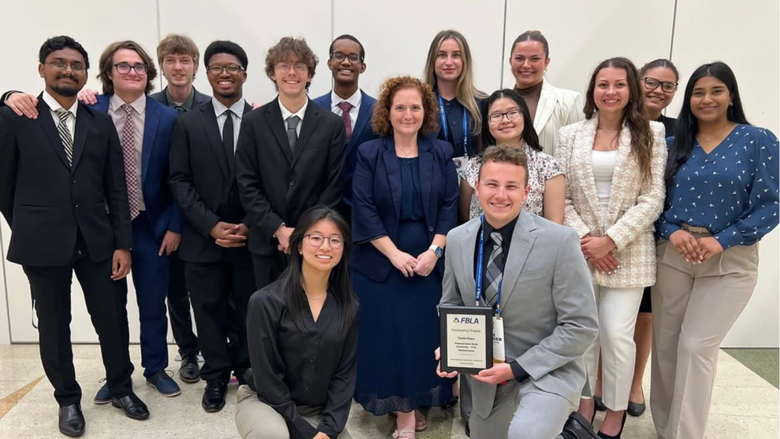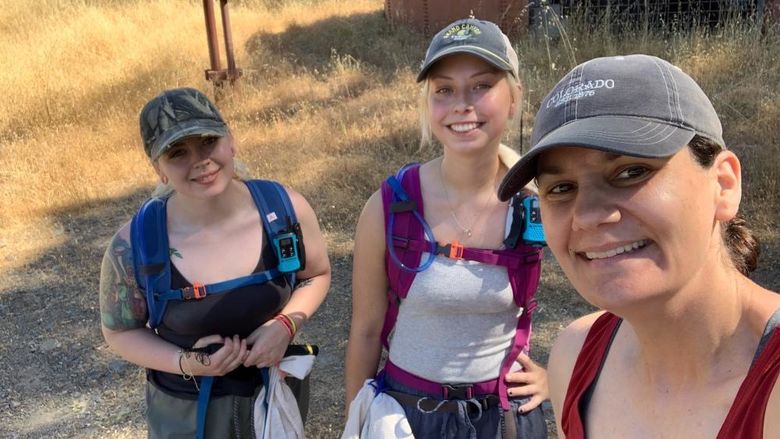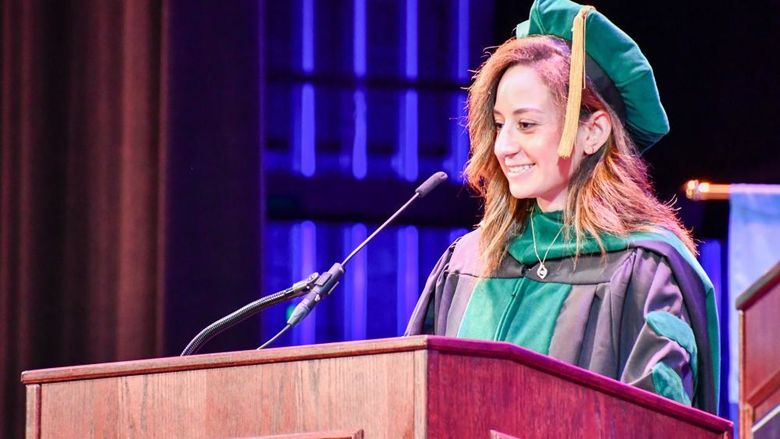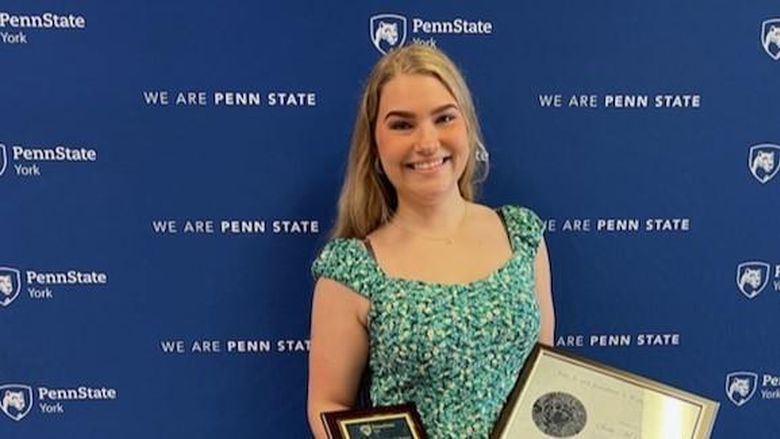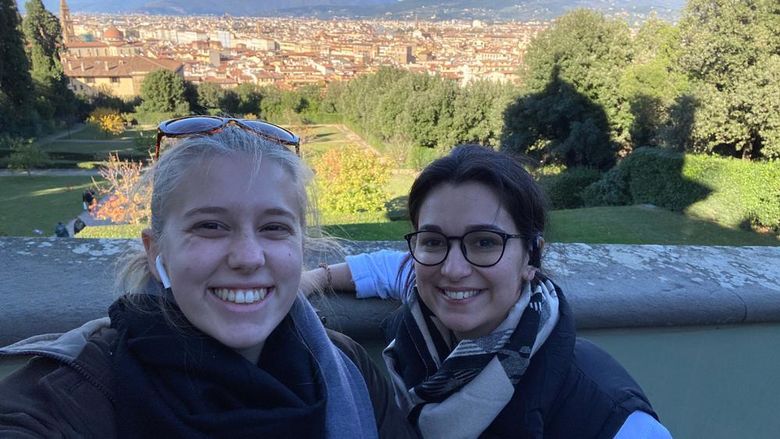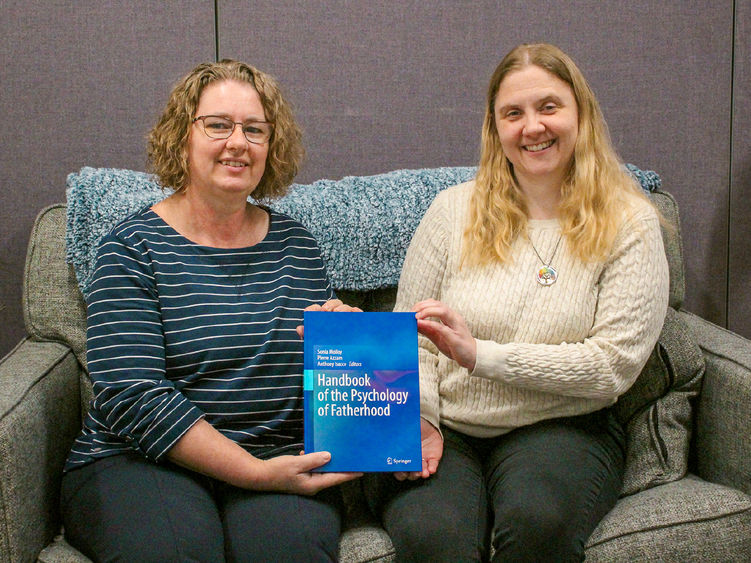
Sonia Molloy (left) and Amber Majeske (right), Penn State York faculty members in human development and family studies, wrote several chapter the “Handbook of the Psychology of Fatherhood.” In addition to Molloy and Majeske, the book includes chapters written by Anthony Isacco, a counseling psychologist and Pierre Azzam, a psychiatrist.
YORK, Pa. — Sonia Molloy and Amber Majeske, Penn State York faculty members in human development and family studies, recently contributed chapters to a new book, “Handbook of the Psychology of Fatherhood," about the concept of "fatherhood" in men and masculinities.
“We are very excited about this book,” said Molloy, and Majeske added, “It was a large undertaking, but it is a great accomplishment.”
Molloy and Majeske’s journey to publishing their chapters in was one involving hard work and merit. Molloy graduated from Penn State in 1994 with a bachelor of science in human development and family studies, earned her master of arts in psychology from Chatham University in 2014, and in 2017 received her doctorate in human development from Virginia Tech. Majeske received her master of arts in family sociology from Eastern Michigan University and a dual doctorate in human development and family studies and gerontology from Purdue University.
The process of writing the chapters, however, was much faster, they said. Molloy and Majeske began editing the book after the American Psychological Conference in August 2019, shortly after they presented it at a symposium.
“The first thing we did was set up our chapters based on a multidisciplinary perspective,” Molloy said. “We invited authors from several different disciplines who are experts and current researchers in their specialties.”
Their writing progress was not met without obstacles; Molloy and Majeske were secured as authors in December 2019, but the COVID-19 pandemic forced them and their fellow authors to readjust their timelines, which delayed the process of collecting all of the chapters for the book until November 2022. Molloy wrote two chapters, “Transition to Fatherhood” and “Intersectionality Theory and Fatherhood,” and Majeske wrote one chapter titled “Fathering Adult Children and Grandfathering.”
“My chapter overall points to the importance of fathers during adulthood and points out the current gaps in the literature including a need for work that focuses on fathering children during middle adulthood,” Majeske said. “Most of what we know about parenting adult children is from the mothers’ point of view and talks about parenting younger children or teens, but when research does focus on fathering adult children, there are important insights into their experiences that warrant conversation and exploration.”
Molloy’s two chapters explore a similar concept, but from different angles.
“In ‘Transition to Fatherhood,’ my co-authors and I focus on the fathers’ transition to parenting,” Molloy said. “We review the literature on how a father’s involvement in fathering is understood and how they experience being a father, as well as the issues they may experience in this period of development such as work policies, social supports, and well-being. Specifically, we focused on paternal postpartum depression, as current research shows that about 10-18 percent of men will experience postpartum depression or anxiety.”
“As for ‘Intersectionality Theory and Fatherhood," we focused on situating the study of fatherhood within an intersectional lens,” Molloy said. “What this means is that we examine the intersection of multiple identities, highlighting the fathers’ experiences of privilege and oppression as it relates to their identities. The chapter also emphasizes applying intersectionality theory to future research and practice with fathers to gain a deeper understanding of the complexities of fathers’ experiences and needs for support.”
Molloy and Majeske’s goal for this book is to provide practitioners, researchers, and students with a comprehensive handbook on fatherhood psychology.
“We wanted to bring all of the scholarship on fathering into one place,” Majeske said. “This way, students and practitioners can better learn and continue the conversation on the psychology of fatherhood. I wish this book would have been available when I was a student; it has so much good information in one location!”
Reflecting on the writing and publication process, Molloy and Majeske both appreciate their co-authors’ contributions and stamina.
“We had the opportunity to work with phenomenal scholars who are doing great work in advancing the field,” Molloy said. “We plan to continue working with these scholars and continue our research in fatherhood.”
